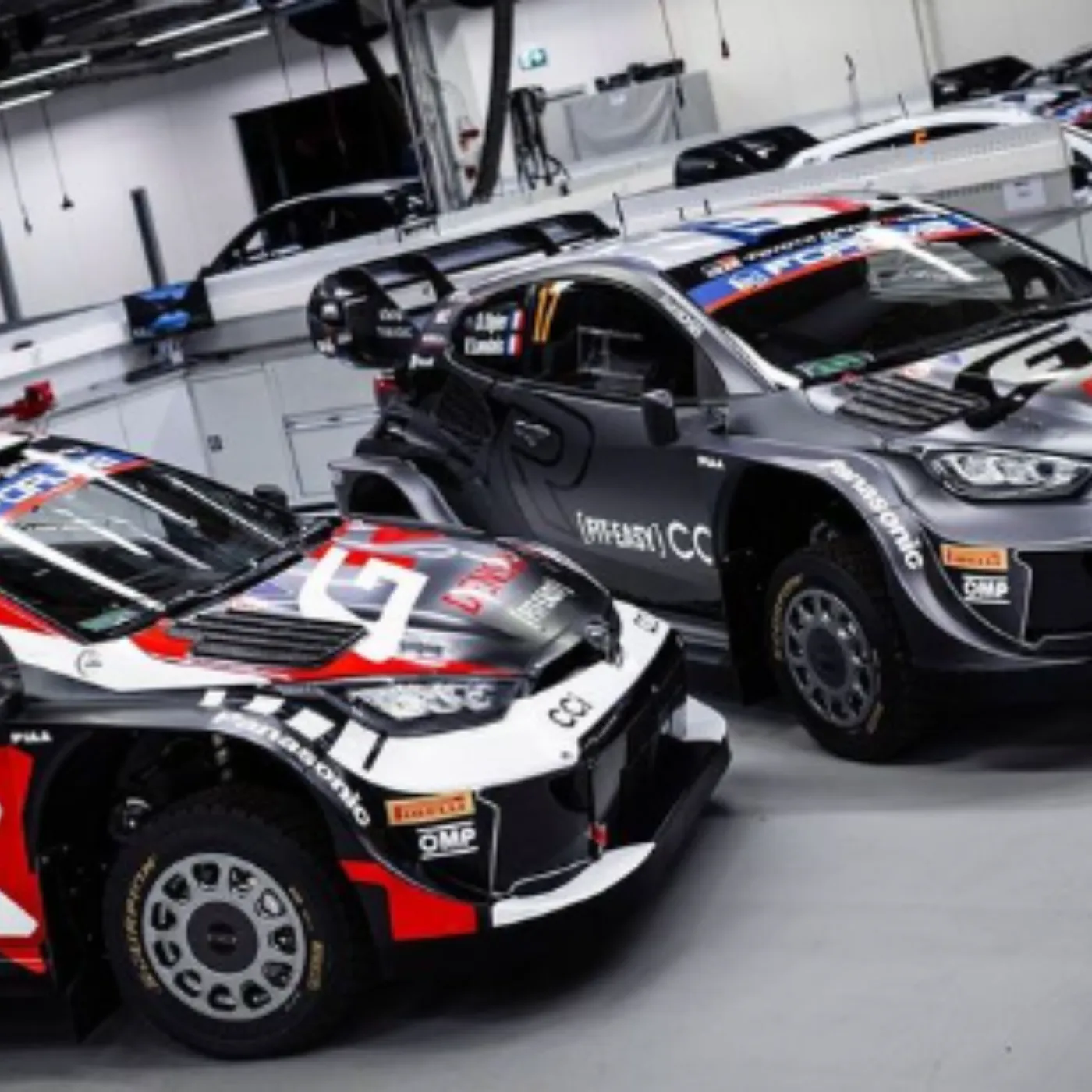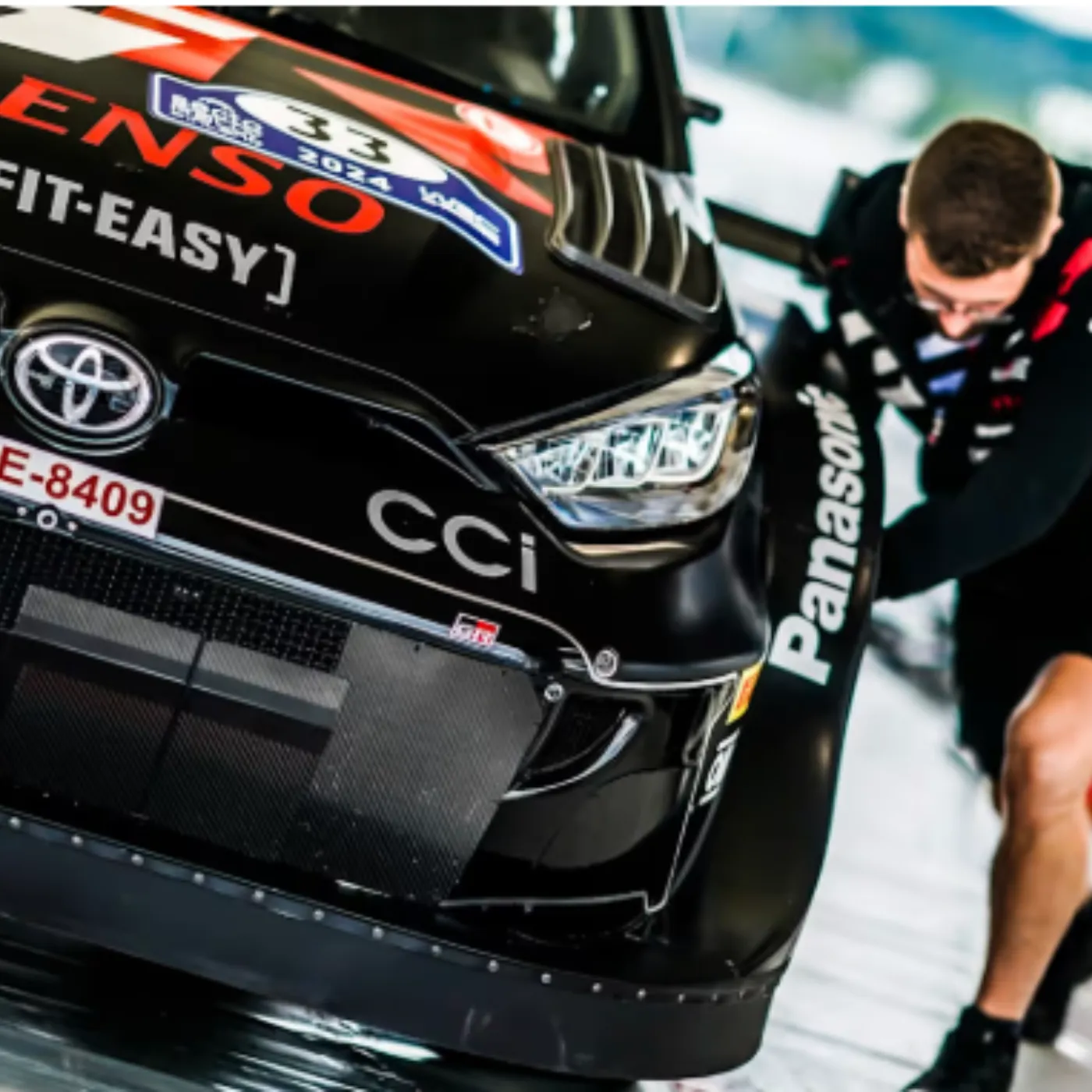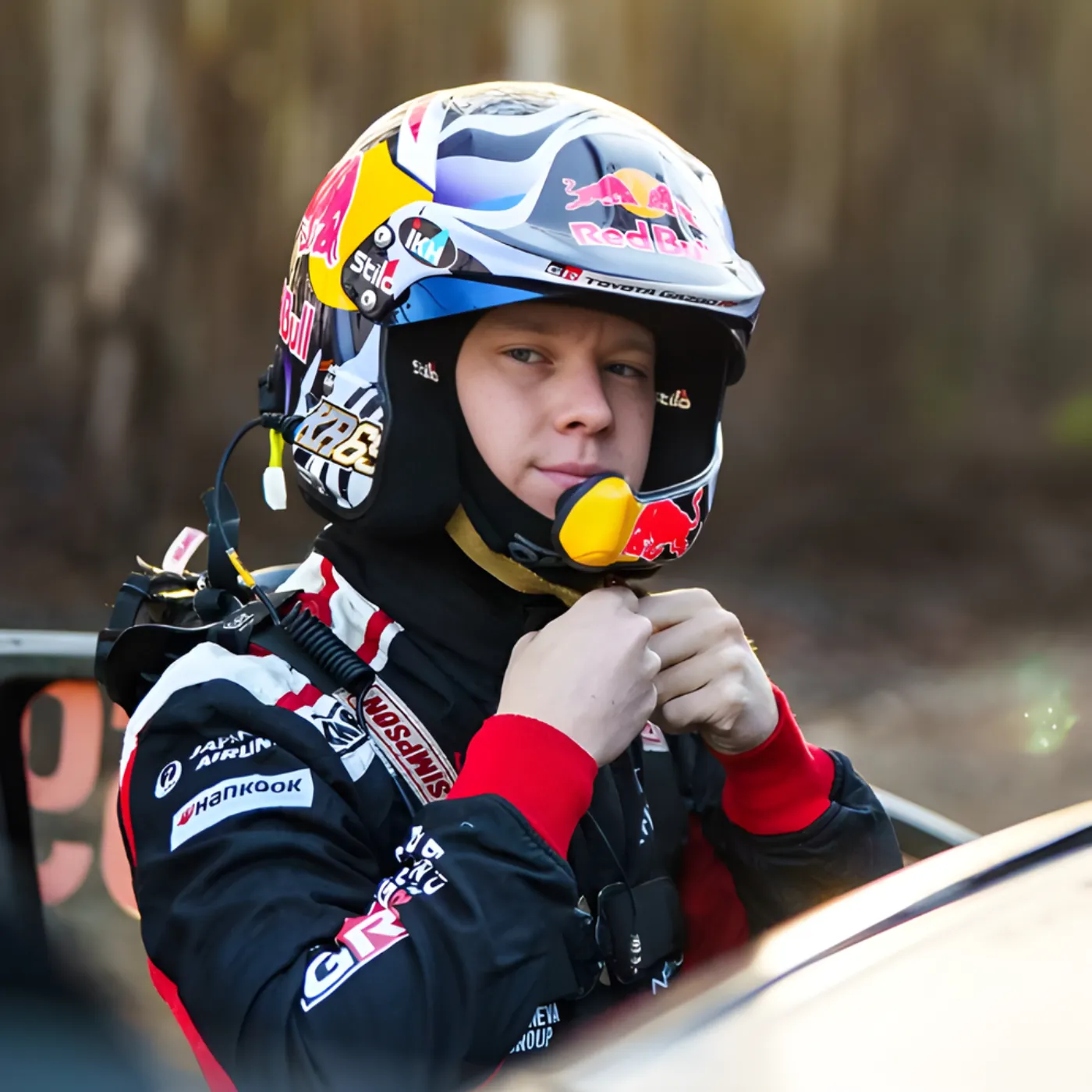

Tom Fowler Reveals the Technological Innovations That Help Toyota Dominate WRC!
In the high-octane world of rally racing, technological innovation is crucial for success. With the World Rally Championship (WRC) being one of the most demanding motorsport platforms, teams must leverage cutting-edge technology to stay competitive. Tom Fowler, a key figure in Toyota Gazoo Racing, has been at the forefront of these innovations, driving the team’s success in recent years. In this article, we will explore the technological advancements that have helped Toyota dominate the WRC, as revealed by Fowler, and analyze how these innovations have transformed the landscape of rally racing.

Background and Career
Tom Fowler is an accomplished engineer and the technical director for Toyota Gazoo Racing. With a deep-rooted passion for motorsport, Fowler has dedicated his career to developing high-performance vehicles tailored for the rigors of rally racing. His extensive experience in automotive engineering and motorsport has positioned him as a leading voice in the industry.
Role at Toyota Gazoo Racing
As the technical director, Fowler oversees the development of Toyota’s rally cars, ensuring they meet the stringent demands of the WRC. His leadership has been instrumental in the design, testing, and implementation of innovative technologies that enhance performance and safety.

The Importance of Technological Innovation in WRC
The Challenge of Rally Racing
Rally racing is unique in that it takes place on diverse terrains, ranging from gravel roads to snow-covered tracks. Drivers must navigate these challenging conditions at high speeds, making reliability, speed, and handling crucial factors for success. Technological innovation is essential to address these challenges effectively.
The Role of Technology
In the WRC, technology plays a pivotal role in several aspects:
- Vehicle Performance: Enhancements in engine power, suspension systems, and aerodynamics contribute significantly to a car’s performance.
- Safety Features: Advanced safety technologies protect drivers and co-drivers during high-speed events.
- Data Analytics: Collecting and analyzing data during races helps teams make real-time adjustments for optimal performance.
Key Technological Innovations Revealed by Tom Fowler
1. Advanced Engine Technology
One of the cornerstones of Toyota’s success in the WRC is its advanced engine technology. Fowler emphasizes the importance of developing a powerful yet efficient engine that can withstand the rigors of rally racing.
Turbocharged Engines
Toyota’s rally cars are equipped with turbocharged engines that deliver impressive power and torque. This technology allows for rapid acceleration and high-speed performance, essential for overtaking competitors on challenging stages.
Engine Mapping
Fowler highlights the importance of engine mapping in optimizing performance. By adjusting fuel injection and ignition timing, engineers can tailor the engine’s response to various conditions, whether on gravel, tarmac, or snow. This adaptability is crucial for maintaining competitive edge throughout a rally.
2. Innovative Suspension Systems
The suspension system of a rally car is vital for handling and stability. Toyota’s engineers have developed cutting-edge suspension technologies to enhance performance on uneven surfaces.
Adaptive Suspension
Fowler discusses the implementation of adaptive suspension systems that automatically adjust damping settings based on road conditions. This technology allows the car to maintain optimal contact with the ground, improving traction and control.
Increased Ground Clearance
In rally racing, the ability to navigate rough terrain is paramount. Toyota’s rally cars feature adjustable ground clearance, allowing teams to modify the vehicle’s height based on the specific stage, thus optimizing performance.
3. Lightweight Materials
Reducing the weight of a rally car is essential for improving speed and handling. Fowler explains how Toyota has invested in lightweight materials to enhance performance without compromising safety.
Carbon Fiber Components
The use of carbon fiber in various car parts has significantly reduced weight while maintaining structural integrity. This innovation not only contributes to speed but also enhances fuel efficiency, allowing for longer stints between refueling.
Aluminum Chassis
Toyota employs aluminum in its chassis design to further decrease weight. This lightweight structure improves overall handling and responsiveness, key factors in achieving success in the WRC.
4. Enhanced Aerodynamics
Aerodynamics plays a critical role in a rally car’s performance, particularly at high speeds. Fowler highlights several aerodynamic innovations that have helped Toyota gain an advantage.
Active Aerodynamics
The integration of active aerodynamic features allows Toyota’s rally cars to adjust their aerodynamic profile during races. These adjustments enhance downforce and stability, particularly during high-speed sections of a rally.
Wind Tunnel Testing
Fowler emphasizes the importance of wind tunnel testing in developing aerodynamic features. By simulating various racing conditions, engineers can refine designs to maximize performance and efficiency.
5. Cutting-Edge Tires
Tire technology is crucial in rally racing, as it directly impacts grip and handling. Toyota has made significant advancements in tire development, as discussed by Fowler.
Multi-Surface Tires
Toyota’s engineers have developed tires that perform well on various surfaces, from gravel to snow. This versatility is essential for rallying, where conditions can change rapidly.
Smart Tire Technology
Fowler reveals that Toyota is exploring smart tire technology that monitors tire pressure and temperature in real-time. This data can help teams make quick decisions during a race, ensuring optimal performance.
6. Data Analytics and Telemetry
The use of data analytics has revolutionized the way teams approach rally racing. Fowler discusses how Toyota utilizes telemetry to gather valuable data during races.
Real-Time Data Collection
Toyota’s rally cars are equipped with advanced telemetry systems that collect data on various parameters, including speed, engine performance, and suspension dynamics. This real-time data allows teams to make informed decisions during a race.
Post-Race Analysis
After each rally, teams conduct detailed analyses of the collected data. This information helps identify areas for improvement, enabling engineers to refine the car’s setup for future events.
The Impact of Technological Innovations on Performance
Enhanced Competitiveness
The technological innovations spearheaded by Tom Fowler have significantly boosted Toyota’s competitiveness in the WRC. By combining advanced engineering with a deep understanding of rally dynamics, Toyota has positioned itself as a leading force in the sport.

Consistency and Reliability
One of the key advantages of these innovations is the improved consistency and reliability of Toyota’s rally cars. By minimizing mechanical failures and enhancing performance, the team can focus on strategy and execution, leading to more successful outcomes.
Driver Confidence
The advancements in technology have also instilled confidence in Toyota’s drivers. Knowing that their vehicles are equipped with the latest innovations allows them to push their limits and perform at their best during races.
The Future of Rally Racing Technology
Continuous Development
As the WRC evolves, so too does the technology behind the sport. Fowler emphasizes the importance of continuous development and adaptation to stay ahead of the competition.
Sustainability Initiatives
With growing concerns about environmental impact, the future of rally racing will likely involve sustainability initiatives. Fowler indicates that Toyota is exploring alternative fuels and hybrid technologies to reduce its carbon footprint while maintaining performance.
Integration of AI and Machine Learning
The incorporation of artificial intelligence and machine learning into data analytics could revolutionize how teams approach racing strategies. By leveraging these technologies, teams can make more informed decisions based on predictive analytics.
Tom Fowler’s insights into the technological innovations that have helped Toyota dominate the WRC offer a fascinating glimpse into the cutting-edge world of rally racing. From advanced engine technologies to innovative suspension systems, Toyota’s commitment to pushing the boundaries of automotive engineering has solidified its position as a leader in the sport.
As rally racing continues to evolve, the importance of technology will only grow. With Fowler at the helm of Toyota Gazoo Racing’s technical efforts, fans can expect to see continued advancements that enhance both performance and safety. The future of WRC is bright, and as technology and racing converge, the excitement of rally racing will undoubtedly reach new heights.
For rally enthusiasts and fans of motorsport, the journey of technological innovation in the WRC is a thrilling narrative that showcases the relentless pursuit of excellence. As we look ahead, one thing is clear: the race is far from over, and Toyota’s commitment to innovation will continue to shape the future of rally racing.


















